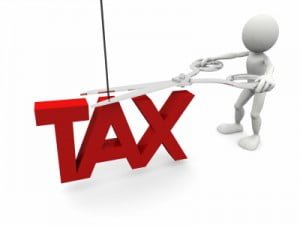
Rules that apply to discharging taxes in bankruptcy:
- You cannot discharge tax debt that was just an assessment for taxes on a tax return you NEVER filed. You must file your taxes in order to discharge any tax debt associated with that filing. This is just one of the reasons why it is important to file your taxes in a timely manner, failing to do so could delay or eliminate your ability to discharge tax debt.
- The tax returns for which you want to discharge the tax debt must have been due three or more years before you file bankruptcy. For example, if you filed bankruptcy in 2010, then you might be able to discharge tax debt from 2007.
- If you were convicted of trying to evade paying taxes you will not be able to discharge your tax debt in bankruptcy.
- The taxes you owe must have been due to the government for at least 240 days before filing bankruptcy. For example, if you received a tax bill from the government for the first time 30 days ago, you would not be able to have it discharged in bankruptcy.
If you owe tax debt and are unable to pay it, please contact the taxing agency to let them know about your situation. State, local and federal taxing authorities have the power to grant hardship deferments to those who are unemployed or have some other financial crisis.